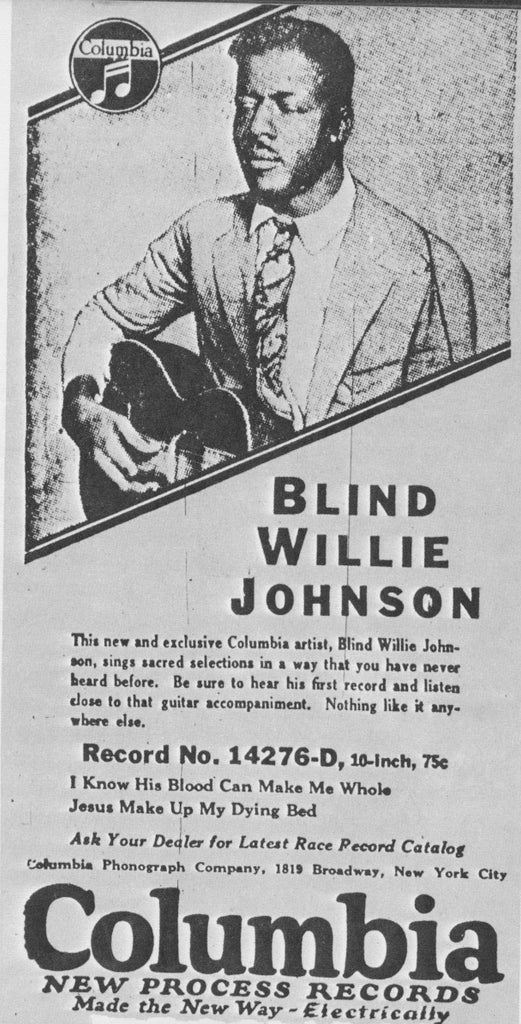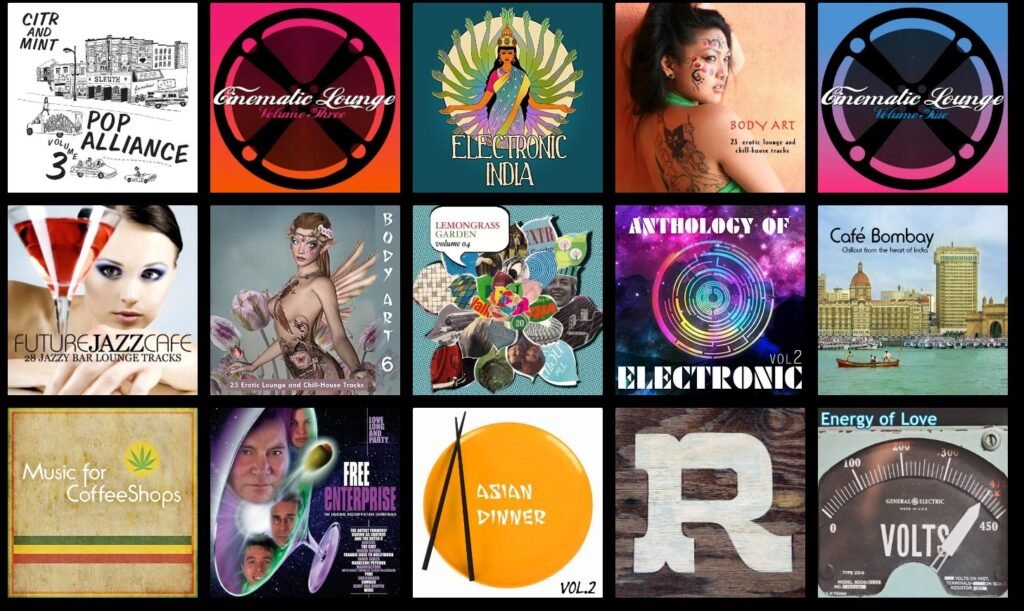At Sunset Music Publishing, we’ve always believed that the past is more than just history—it’s a living force that shapes how artists, rights holders, and the global music community understand creativity today. Every catalog we represent and every song we place carries a story. Few illustrate that powerful arc better than the remarkable legacy of Blind Willie Johnson and the journey of his public domain compositions into contemporary culture, including their modern revival through projects like American Drug War: The Last White Hope and its accompanying soundtrack released through Sunset Special Markets (SSM) at https://sunsetspecialmarkets.com.
What makes Johnson’s presence in our catalog so important is not just the timeless emotional depth of his recordings, but what his life and music reveal about ownership, rights, and the ever-shifting landscape of publishing from the early 20th century to today’s digital world.
The Enduring Fire of Blind Willie Johnson
Blind Willie Johnson—born William Johnson—was far more than a bluesman; he was a visionary whose raw, gravel-soaked voice and knife-slide guitar reshaped the boundaries between gospel, blues, and spiritual lament. His artistry was forged in struggle, performed on streets and storefronts, and powered by a conviction that still feels unearthly more than a century later.
His signature instrumental, “Dark Was the Night, Cold Was the Ground,” is one of the purest expressions of human emotion ever recorded: wordless moans set against chilling slide work. That haunting track did something no other blues performance had done at the time—it transcended the Earth itself. NASA selected it for the Voyager Golden Record in 1977, sending his music into deep space as a sonic ambassador for the entire human species. That cosmic milestone cemented Johnson as a universal voice of suffering, resilience, and spiritual depth.
Major artists have long recognized the power in Johnson’s recordings. Led Zeppelin’s Robert Plant has cited him as a profound influence. Eric Clapton, Tom Waits, Ry Cooder, and many others have covered his catalog, each one acknowledging the emotional gravity of his work. Yet Johnson himself died in 1945 in near-total poverty, living in the charred shell of his burned home. The world only began to recognize his genius long after he was gone.
Today, his compositions—now in the public domain—continue to shape film, television, and contemporary projects thanks to publishers, curators, and advocates committed to ensuring his music is never forgotten.
Sunset Music Publishing’s Advocacy and Placement Power
Sunset Music Publishing’s work with Johnson’s catalog isn’t merely archival—it’s active cultural preservation. By placing his public domain compositions in projects like American Drug War: The Last White Hope, we’re continuing a mission built on respect for legacy artists, fair licensing practices, and the belief that these foundational recordings deserve renewed visibility in modern creative spaces.
The soundtrack release through Sunset Special Markets brings Johnson’s sound to a new generation of listeners, linking the historical roots of American music with today’s filmmakers, producers, and storytellers. Our advocacy is centered on honoring tradition while ensuring that legacy music remains accessible, discoverable, and fairly represented across contemporary media.
How Public Domain Freedom Protects and Revives Legacy Music
Blind Willie Johnson’s work entering the public domain is part of a larger ecosystem where creative heritage becomes available for new interpretations, recordings, and uses without the barriers of copyright restrictions. Understanding how public domain status works is essential for creators, producers, and music supervisors who want to integrate heritage music into modern projects.
Creative works join the public domain in a few key ways:
- Copyright expiration, the most common path, after a set term that typically runs for the author’s life plus 70 years.
- Voluntary dedication, where rights holders choose to release their work freely.
- Ineligibility for copyright under certain legal standards, such as U.S. government works or works that failed to meet older notice requirements.
For music specifically, the distinction between composition and recording is essential. A composition may be in the public domain, but any specific sound recording of that composition may still be protected. This means creators are free to record their own interpretations without restriction, but cannot use a copyrighted recording without permission.
Johnson’s compositions are free, but particular recordings may not be. Sunset helps artists and partners navigate that nuanced territory, ensuring proper use of both historical works and modern interpretations.
From Printed Notes to Streaming Algorithms: Why Publishing Still Matters
The journey from the earliest sheet music to today’s digital publishing environment helps explain why public domain access and catalog advocacy remain so important.
Music publishing began in the age of the printing press, when Petrucci’s Harmonice Musices Odhecaton helped launch the global industry and early copyright laws—like the 1710 Statute of Anne—laid the foundation for protecting creative outputs. Tin Pan Alley later turned songwriting into a commercial machine, powered by household pianos and printed sheet music demand.
The 20th century brought seismic shifts: the phonograph, radio, mechanical royalties, and the rise of performance rights organizations such as ASCAP and BMI. Each innovation expanded how music traveled, how rights were accounted for, and how artists could earn.
Then came the digital revolution—Napster, piracy, iTunes, and eventually streaming. Today’s publishing universe is a global rights-management ecosystem where accuracy, metadata, licensing, and catalog strategy determine whether creators get paid and whether heritage works remain visible in an infinite sea of content.
For Sunset Music Publishing, this means advocating for catalog representation, promoting historical and contemporary works, and ensuring creators and estates remain part of the conversation. Public domain compositions like those of Blind Willie Johnson remind us what is at stake when music outlives its original era and continues to evolve across generations.
Why Advocacy Work Like Ours Matters Right Now
As technology rewrites the music industry every few years, the role of a committed publisher becomes more crucial than ever. Sunset Music Publishing stands at that intersection—protecting creativity, elevating legacy artists, empowering new voices, and ensuring that public domain works such as Johnson’s are used responsibly and creatively across modern media.
Blind Willie Johnson’s journey from street performer to space traveler, from poverty to posthumous influence, illustrates exactly why we champion artists from every era. His sound still resonates, still inspires, and still reaches new listeners through thoughtful placement and creative revitalization.
At Sunset, we’re here to make sure that continues—across films, soundtracks, recordings, and every evolving platform where powerful music belongs.





